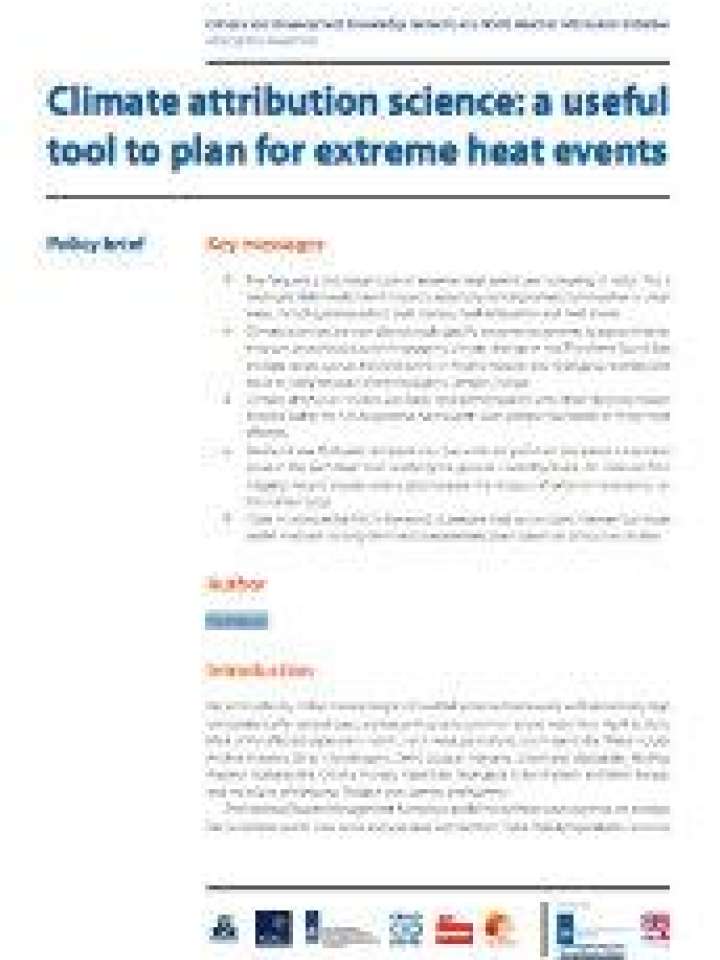Climate attribution science – a useful tool to plan for extreme heat events
This policy brief, from the CDKN Raising Risk Awareness initiative, identifies how climate change attribution science can help to mitigate future extreme heat events and address the needs of those most affected.
Key messages
- The frequency and magnitude of extreme heat events are increasing in India. This is leading to detrimental health impacts, especially on marginalised communities in urban areas, including dehydration, heat cramps, heat exhaustion and heat stroke.
- Climate scientists are now able to study specific extreme heat events to assess whether they can be attributed to anthropogenic climate change or not. They have found that the heat waves such as the 2015 events in Andhra Pradesh and Telangana have become twice as likely because of anthropogenic climate change.
- Climate attribution studies also help local administrators and other decision-makers prepare better for future extreme heat events and address the needs of those most affected.
- Studies show that peak temperatures rise when air pollution decreases, as aerosols prevent the sun’s heat from reaching the ground. Humidity levels, for instance from irrigation in and around towns, also increase the impacts of extreme heat events on the human body.
- Cities in India are the first in the world to prepare heat action plans. Planners can make better medium- to long-term heat preparedness plans based on attribution studies.
Explore further
